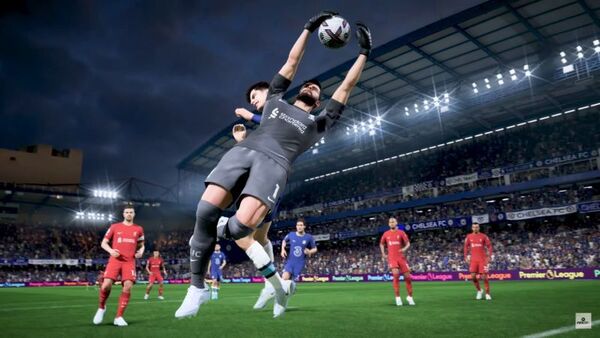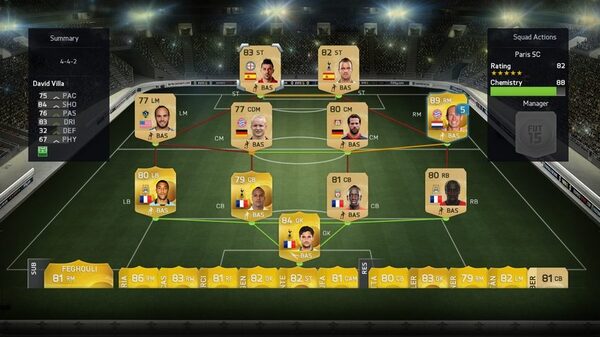Advertisement
Popular Now
In recent years, the FIFA franchise by EA Sports has faced significant criticism surrounding its use of microtransactions, particularly in its popular FIFA Ultimate Team (FUT) mode. With FUT being a major revenue generator, the debate on how microtransactions impact gameplay and player experience has become a central issue. This article will explore the complexities of this issue, focusing on the balance between monetization and fair play, player feedback, and potential solutions.




The Rise of Microtransactions in FIFA Ultimate Team
When FIFA Ultimate Team (FUT) was first introduced in FIFA 09, it was celebrated as a mode that allowed players to create their dream teams by earning players through matches and tournaments. However, as the years progressed, FUT evolved into a multi-billion-dollar enterprise for EA Sports, largely due to the integration of microtransactions. Players could now purchase FIFA Points with real money, which could be used to buy packs containing random players. The allure of obtaining high-rated players in these packs led to a growing reliance on spending money to compete, rather than simply playing the game. This shift has led to increasing concerns over the "pay-to-win" nature of the mode.Initial Player Response to Microtransactions
In the early days, players were generally accepting of the new system, viewing it as a fair way to reward dedication. However, as the randomness of the pack system became more apparent, frustration grew. Spending large sums of money did not guarantee obtaining the top-tier players, leading to accusations that the system was exploitative.The "Pay-to-Win" Debate
The term "pay-to-win" refers to the notion that spending real money gives players a significant advantage over those who do not. In FUT, this manifests as the ability to buy packs to obtain powerful players, rather than earning them through skill and dedication. Critics argue that this system unfairly disadvantages players who cannot afford to spend money on the game, making it nearly impossible for them to compete at higher levels. In turn, this has sparked debates about the fairness and integrity of FUT as an esports platform, where player skill is meant to be the determining factor of success.Impact on Competitive Play
FIFA Ultimate Team is not just a casual game mode; it has grown into a highly competitive platform with its own tournaments and esports events. The imbalance created by microtransactions threatens the competitive nature of these events, as wealthier players can buy their way to better teams, leaving more skilled but less financially capable players at a disadvantage.Loot Boxes and Gambling Concerns
Another significant issue in the microtransaction debate is the association of FUT packs with gambling. Since packs are purchased without knowing the exact contents, players are essentially gambling on the chance of obtaining rare and high-rated players. This has led to criticism from both players and government bodies, with some countries even investigating the legality of loot boxes in video games. The randomness and addictive nature of the system have raised concerns about the impact on younger players, who may not fully understand the financial risks involved.
Regulation of Loot Boxes
Several countries, including Belgium and the Netherlands, have taken steps to regulate or outright ban the sale of loot boxes, classifying them as a form of gambling. In response, EA Sports has made adjustments to its pack systems in certain regions, though many players feel these changes are not enough to address the root of the problem.Player Frustration and Backlash
The implementation of microtransactions and loot boxes has sparked widespread frustration within the FIFA community. Many players feel that the emphasis on monetization has taken away from the enjoyment of the game, with some even boycotting the franchise altogether. Social media platforms and forums are filled with complaints about the unfairness of FUT, with players sharing stories of spending hundreds of dollars on packs without obtaining any valuable players. This growing dissatisfaction has led to campaigns calling for changes to the FUT system.Community Movements Against Microtransactions
In recent years, several community-driven movements have emerged to protest the microtransaction system in FIFA. For example, the hashtag #FixFIFA gained traction on Twitter, with players demanding changes to FUT and expressing their dissatisfaction with EA Sports' business practices.EA Sports' Response to Criticism
In the face of mounting criticism, EA Sports has made some attempts to address player concerns. The company has introduced new features aimed at making FUT more accessible, such as Squad Building Challenges (SBCs), which allow players to earn packs through gameplay, and the introduction of Season Objectives, which reward players for completing in-game tasks. However, these changes have been met with mixed reactions. While some players appreciate the added opportunities to earn packs without spending money, others argue that the core issue—the reliance on microtransactions—remains unaddressed.EA's Defense of Microtransactions
EA Sports has consistently defended its use of microtransactions in FUT, arguing that the system provides players with choice and does not force anyone to spend money. The company also points to the fact that many players enjoy the thrill of opening packs and the chance to obtain rare players.Proposed Solutions to the Microtransaction Issue
Various solutions have been proposed to address the issues surrounding microtransactions in FIFA Ultimate Team. Some players have called for the removal of microtransactions altogether, while others suggest a more balanced approach, such as limiting the amount of money that can be spent or introducing guaranteed rewards for certain levels of spending. Another potential solution is increased transparency. By providing players with more information about pack odds and the likelihood of obtaining specific players, EA Sports could reduce the feeling of being exploited by the system.
















